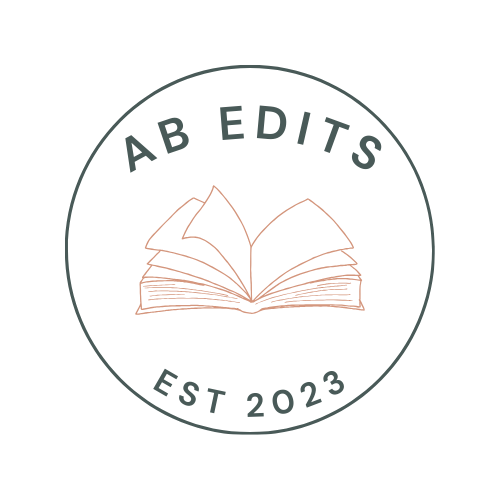The seven deadly sins of writing, part one: sloth, envy, and wrath
This multi-part blog series was inspired by George Saunders’ 2022 book, A Swim in a Pond in the Rain: In Which Four Russians Give a Master Class on Writing, Reading, and Life. The book contains seven iconic short stories by Russian authors. After each story, Saunders shares his thoughts on its content, structure, and meaning. His commentary is deeply insightful and brimming with humour, wisdom, and compassion.
Saunders explores various themes in his essays. But he returns, time and again, to fundamental moral questions. In doing so, he implicitly invokes the seven deadly sins—pride, greed, wrath, envy, lust, gluttony, and sloth—a group of vices rooted in Christian theology. Each sin represents a moral transgression that humans are meant to resist and overcome.
In this blog, I consider how the seven deadly sins crop up in writing, how writers fall prey to them, and how they can be avoided. In Part One, I cover sloth, envy, and wrath, and in Part Two, I will cover pride, lust, greed, and gluttony.
Sloth
Miriam-Webster defines sloth as “a disinclination to action and labour.” It’s a sin that writers frequently grapple with. Sloth is present, for example, in work that’s been hastily or carelessly edited, since the editorial process can be quite labour-intensive.
Unedited work is rife with typos, grammatical mistakes, and all manner of inconsistencies. The sin is especially problematic in legal writing: a lack of attention to detail can compromise the reader’s faith in the writer’s authority, leading to a breach of trust. It is therefore essential that writers reread their work, and ideally have it reviewed by a fresh set of eyes.
Saunders is a fierce proponent of the process of revision: “a repetitive, obsessive, iterative application of preference: watch the needle, adjust the prose, watch the needle, adjust the prose (lather, rinse, repeat), through (sometimes) hundreds of drafts, over months or even years” (Saunders 111). Lawyers seldom have the luxury of months or years to pour over every word of a document; on the contrary, they usually operate under tight deadlines. But Saunders’ advice to writers is nevertheless instructive:
To be a writer, I only need to read a specific sentence of mine, in its particular context, pencil in hand, changing the sentence as it occurs to me to do so. Then do that again, over and over, until I’m pleased” (Saunders 114).
This simple yet profound formula is an effective antidote to sloth.
Envy
Envy is the “painful or resentful awareness of an advantage enjoyed by another joined with a desire to possess the same advantage.” It is arguably the most insidious of writerly sins. Writers are naturally influenced by other writers. This, in itself, is not problematic. Problems may arise, however, when envy compels the writer to emulate the voices and styles of the writers they admire. In extreme cases, this can lead to plagiarism. More commonly, envy causes the writer to produce work that is cheap and derivative. Readers can intuitively sense the writer’s posturing and are repelled by it.
In Saunders’ perspective, the writer does not choose their voice; rather, it slowly develops from within, bubbling up to the surface over time. He argues:
This writer may turn out to bear little resemblance to the writer we dreamed of being. She is born, it turns out, for better or worse, out of that which we really are (Saunders 106).
When we come to know and accept our true selves, we bring that authenticity to our writing. Honesty, then, is the antithesis of envy.
Wrath
Wrath is a state of intense emotion, defined as “strong vengeful anger or indignation.” Writing from a place of wrath can produce compelling, captivating prose. On the flip side, such writing can be heavy-handed and lack nuance. To avoid this pitfall, the solution is not to deny wrath altogether but to strike a balance between reason and emotion. Without the coolheaded intervention of reason, the writer is prone to “all-or-nothing thinking”—a fallacy in which life is viewed in dualistic terms such as “good and evil” and “right and wrong.” But life, and especially morality, is rarely so clear-cut. Anyone alive can attest that it’s hopelessly, irredeemably messy.
Saunders pays homage to this messiness in his description of Olenka, the central character in Anton Chekhov’s “The Darling.” Olenka, nicknamed “the darling” for her sweet and gentle demeanor, is deeply flawed and complex. As the story unspools, all the facets of her identity come to light. Saunders describes the reader’s reaction to Olenka as follows:
We don’t exactly know what to think of Olenka. Or, feeling so multiply about her, we don’t know how to judge her.
The story seems to be asking, “Is this trait of hers good or bad?”
Checkhov answers: “Yes.”
Olenka’s ambiguity is what makes her interesting and what makes “The Darling” such a searing piece of literature.
Wrath can provide fuel for great writing. But to accurately portray a person or a situation, writers should widen their field of vision and explore the moral grey zones where most of us dwell.
To be continued. . .
